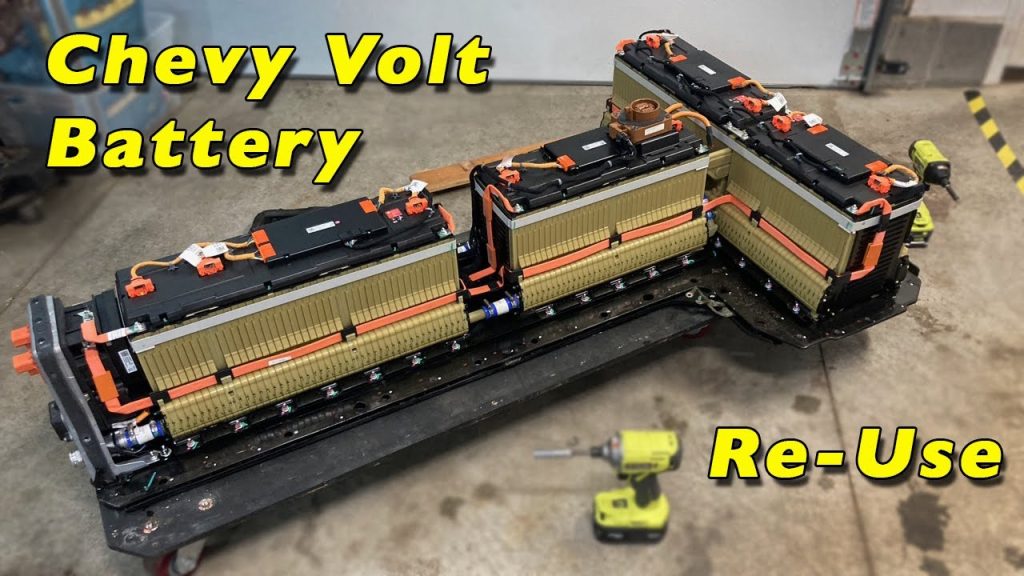If you’ve ever asked yourself, “How long does a Chevy Volt battery last?” you’re not alone. As an owner or prospective buyer of a Chevy Volt, understanding the longevity of its battery is crucial. This article delves deep into the lifespan of a Chevy Volt battery, the factors affecting it, and practical tips to optimize its health. Whether you’re concerned about your driving habits, charging practices, or the impact of climate, this comprehensive guide will provide you with all the insights you need.
General Lifespan of a Chevy Volt Battery
The Chevy Volt, a pioneer in the realm of hybrid electric vehicles (EVs), boasts a battery life that frequently exceeds expectations. On average, a Chevy Volt battery lasts between 100,000 to 150,000 miles or approximately 8 to 10 years. However, this can vary based on several factors, including usage patterns and environmental conditions.
Chevy Volt’s battery is designed to endure the test of time, but like all batteries, it will slowly degrade. This degradation is typically gradual, ensuring you won’t experience a sudden drop in performance. In fact, many Volt owners report minimal loss in battery capacity even after several years of use.
Factors Affecting Battery Life

Driving Habits
Your driving habits play a pivotal role in determining the lifespan of your Chevy Volt battery. Frequent acceleration and high-speed driving can strain the battery more than steady, moderate driving. Urban driving, characterized by stop-and-go traffic, can also impact battery life due to the constant need for acceleration.
Climate and Weather Conditions
Extreme temperatures, both hot and cold, can significantly affect your battery’s longevity. High temperatures can cause the battery to overheat, leading to increased degradation rates. Conversely, extremely cold temperatures can reduce the battery’s efficiency and increase wear over time. The Chevy Volt’s thermal management system helps mitigate these effects, but it’s still essential to be mindful of the climate in which you operate your vehicle.
Charging Practices
How you charge your Chevy Volt can make a big difference in battery life. Frequent fast charging can accelerate battery degradation due to the high levels of heat generated during the process. On the other hand, regular use of a standard Level 2 charger is gentler on the battery and can help extend its lifespan.
Energy Management Systems
The Chevy Volt is equipped with advanced energy management systems designed to optimize battery performance and longevity. These systems regulate charging and discharging cycles, ensuring that the battery operates within safe parameters. Properly utilizing these systems can help you get the most out of your battery.
Comparing Chevy Volt Battery Life to Other Electric Vehicles
When comparing the Chevy Volt’s battery life to other electric vehicles (EVs), the Volt stands out for its reliability and longevity. While many EVs experience significant battery degradation within the first few years, the Chevy Volt’s battery tends to maintain its capacity well over time.
For instance, the Nissan Leaf, another popular EV, often sees a noticeable drop in battery capacity after 5 to 7 years. In contrast, the Chevy Volt’s battery typically retains a higher percentage of its original capacity over a similar period. This makes the Chevy Volt a more dependable choice for those concerned about long-term battery health.
Signs of Battery Degradation
Decreased Range
One of the most apparent signs of battery degradation is a decrease in the vehicle’s electric range. If you notice that your Chevy Volt no longer travels as far on a full charge as it used to, it could be an indication that the battery is losing capacity.
Warning Indicators
Modern vehicles are equipped with various warning indicators to alert you to potential issues. If your Chevy Volt’s dashboard displays a warning related to the battery, it’s crucial to address it promptly. These warnings can provide early detection of battery problems, allowing you to take corrective action before the situation worsens.
Performance Changes
A degraded battery can also result in noticeable changes in vehicle performance. You might experience reduced acceleration, slower charging times, or difficulty maintaining high speeds. If you observe any of these changes, it could be a sign that your battery needs attention.
Tips for Optimizing Chevy Volt Battery Health
Regular Maintenance
Regular maintenance is key to prolonging the life of your Chevy Volt battery. Ensure that your vehicle undergoes routine check-ups, including battery inspections. Keeping your Volt in good overall condition will help prevent issues that could indirectly affect the battery.
Smart Charging Habits
Adopting smart charging habits can significantly extend your battery’s lifespan. Here are some tips:
- Avoid Frequent Fast Charging: Use fast charging sparingly to minimize heat generation.
- Charge to 80%: Regularly charging your battery to 80% instead of 100% can reduce stress on the battery.
- Avoid Deep Discharges: Try not to let your battery level drop below 20% frequently, as deep discharges can accelerate degradation.
Utilizing Energy-Saving Modes
The Chevy Volt comes with energy-saving modes that can help optimize battery usage. Utilize these modes, especially during long drives, to reduce the strain on your battery. Modes like “Hold” or “Mountain” can be particularly useful in preserving battery life.
Warranty Information for Chevy Volt Batteries

Chevy Volt batteries come with a robust warranty, typically covering 8 years or 100,000 miles, whichever comes first. This warranty provides peace of mind, ensuring that you are protected against premature battery failure. It’s important to familiarize yourself with the warranty terms and conditions to understand what is covered and how to make a claim if needed.
Options for Battery Replacement or Upgrades
Aftermarket Solutions
If your Chevy Volt battery needs replacement or if you’re looking to upgrade, several aftermarket solutions are available. These options can sometimes offer enhanced performance or longer life compared to the original battery. However, it’s crucial to choose a reputable provider and ensure compatibility with your vehicle.
Conclusion
In conclusion, the Chevy Volt battery is designed to last between 100,000 to 150,000 miles or approximately 8 to 10 years. By understanding the factors affecting battery life and adopting best practices for maintenance and charging, you can maximize your battery’s lifespan. Whether you’re comparing the Volt to other EVs or considering aftermarket solutions, this guide provides you with the knowledge you need to make informed decisions.
ALSO READ: How Long Does A Heated Jacket Last?
FAQs
You can tell if your Chevy Volt battery is degrading by monitoring for decreased range, warning indicators on the dashboard, and changes in vehicle performance, such as reduced acceleration or slower charging times.
If you see a battery warning indicator, it’s important to address it promptly. Consult your vehicle’s manual and consider visiting a certified Chevy service center for a professional diagnosis.
Yes, several aftermarket solutions are available that can offer enhanced performance or longer life compared to the original battery. Ensure that you choose a reputable provider and verify compatibility with your vehicle.
Extreme temperatures, both hot and cold, can significantly affect your battery’s longevity. High temperatures can cause the battery to overheat, while extremely cold temperatures can reduce efficiency and increase wear over time.
While fast chargers are convenient, frequent use can accelerate battery degradation due to the high levels of heat generated. Regular use of a standard Level 2 charger is gentler on the battery and can help extend its lifespan.




